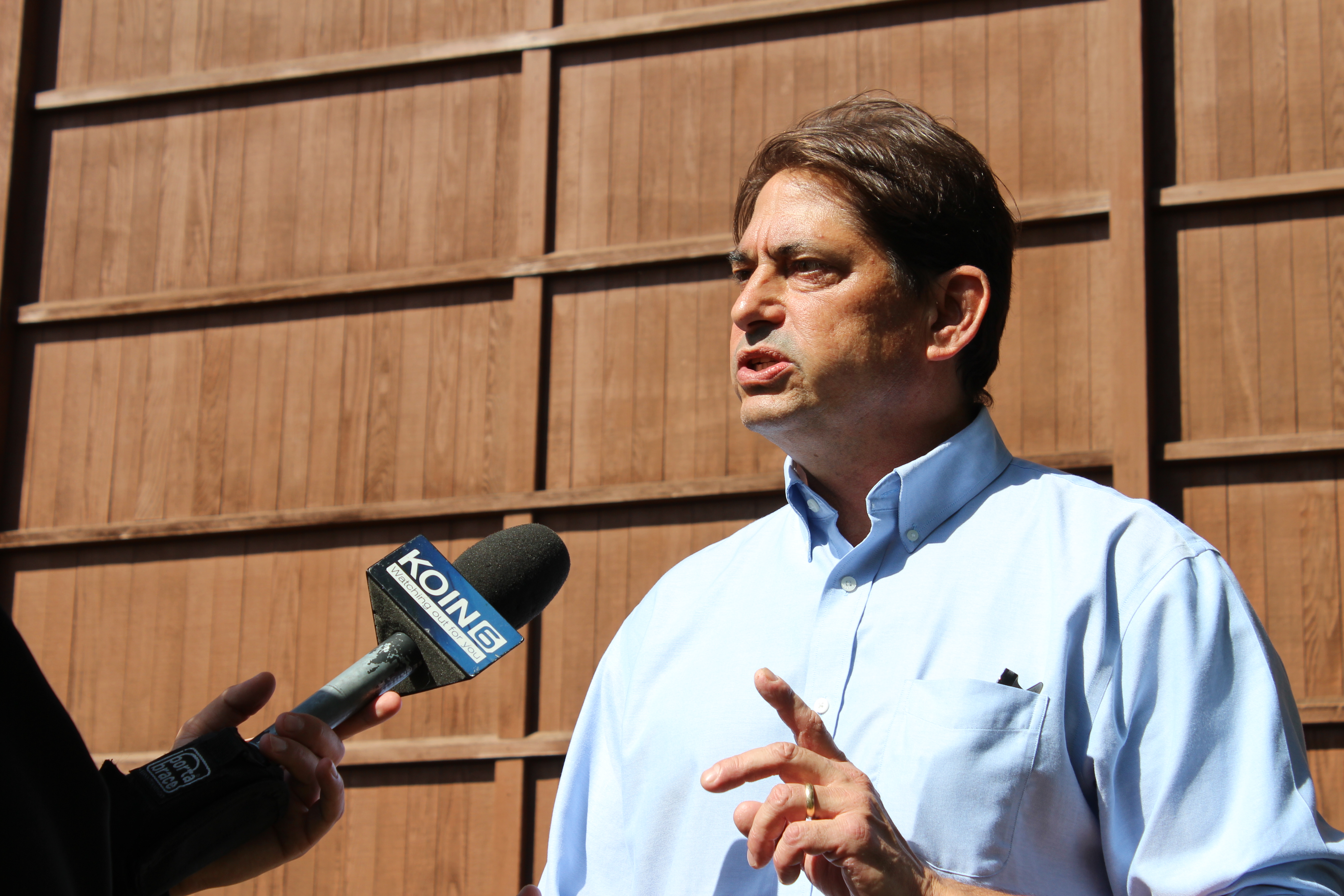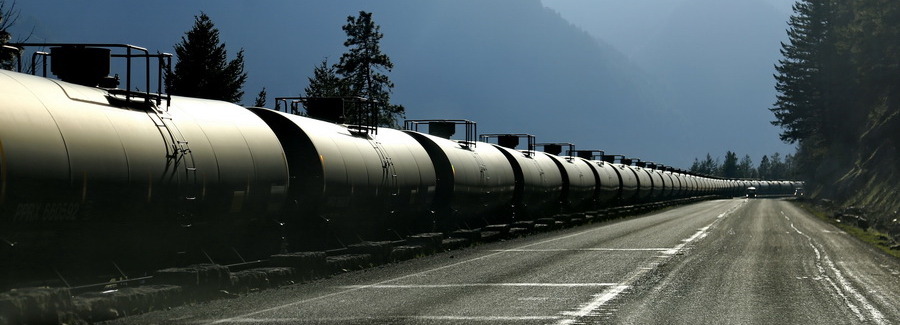Why are oil trains and terminals a threat to the Columbia River Gorge?
Michael Lang: Any oil trains headed to terminals and refineries in the Pacific Northwest travel through the Columbia River Gorge National Scenic Area. Each oil train is a mile long and carries 3 million gallons of volatile Bakken or tar sands oil in rail cars that puncture in accidents at speeds as low as 14 mph. These potentially explosive “pipelines on rails” endanger communities and waterways throughout Oregon, presenting the risk of severe damage to public safety, drinking water, and Columbia River salmon habitat.
.jpg) A June 2016 oil train derailment in Mosier, Oregon, brought the threat home. The train spilled thousands of gallons of oil, some of which leaked into the Columbia River, contaminated the city of Mosier’s water plant, and ignited a fire that threatened homes and an elementary school.
A June 2016 oil train derailment in Mosier, Oregon, brought the threat home. The train spilled thousands of gallons of oil, some of which leaked into the Columbia River, contaminated the city of Mosier’s water plant, and ignited a fire that threatened homes and an elementary school.
What is Oregon doing to address the threat?
Michael: Not enough. Oregon has the weakest laws on the West Coast regarding oil train emergency response. While Washington and California require state-approved oil spill cleanup plans, proof of insurance for spills by the railroads and fees to pay for emergency response planning and training, Oregon has no such requirements. Unlike Washington, Oregon does not require advance notice for incoming oil trains or reporting on oil train traffic. (As a result, the state Department of Environmental Quality struggled to obtain basic information from Zenith Energy about its shipments of tar sands oil into Portland.) Regarding new oil terminals, Oregon does not require a state land lease to build an oil terminal on state-owned land, nor does it require comprehensive environmental review of oil terminal proposals.
What more should Oregon do?
Michael: Adoption of House Bill 2209 would point Oregon in the right direction. The bill requires railroads to create oil spill contingency plans, establishes an oil spill preparedness fund, requires proof of insurance by the railroads and mandates coordinated response to spills. HB 2209 is more narrow than legislation introduced at the request of Friends of the Columbia Gorge, but it's the only oil train legislation still alive during this session of the legislature. HB 2209 caps oil spill response plans and proof of financial responsibility at 15% of an oil train’s capacity and does not require notification and reporting of oil trains passing though Oregon.
Especially in light of the Trump administration’s repeal of a 2015 Department of Transportation rule requiring oil trains to use newer, safer, breaking technology, Oregon needs to ensure it is doing all it can to reduce the threat from oil trains and hold railroad companies accountable. Passage of HB 2209 is a good start.
 What action can I take?
What action can I take?
Michael: Please join our efforts to protect the Columbia Gorge and the rest of Oregon from the disastrous impacts of oil train derailments and spills. Contact your state legislators and Gov. Kate Brown. Urge them to pass strong oil train safety legislation, including House Bill 2209. Tell them to make it clear to the state Department of Environmental Quality that Oregon residents expect the agency to protect public health and the environment.
Sign up for Friends Action Alerts.
Erin Middlewood is a writer from Vancouver, Washington. She enjoys exploring the Columbia River Gorge with her husband and two sons. She's especially fond of the Nancy Russell Overlook at Cape Horn. Follow her at erinmiddlewood.com or @emiddlewood on Twitter.
Photos in body text (top to bottom):
- Oil fire from Mosier train derailment, June 2016. (photographer: Michael McKeag)
- Michael Lang at rally before Union Pacific Rail Expansion Hearing. (photographer: Ryan Rittenhouse)

